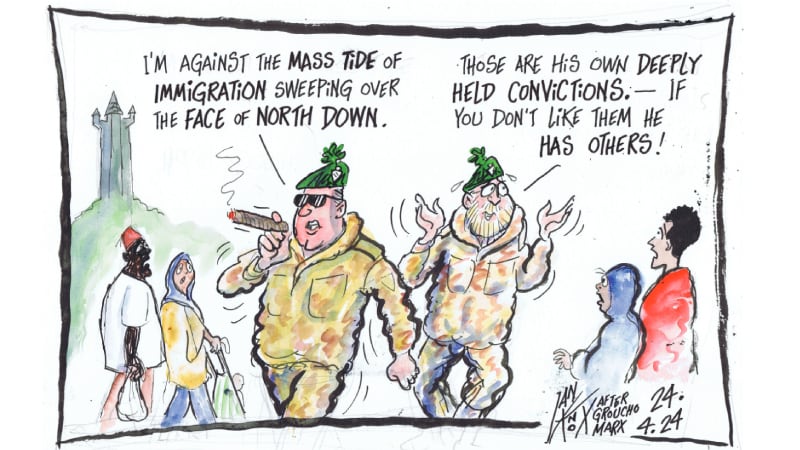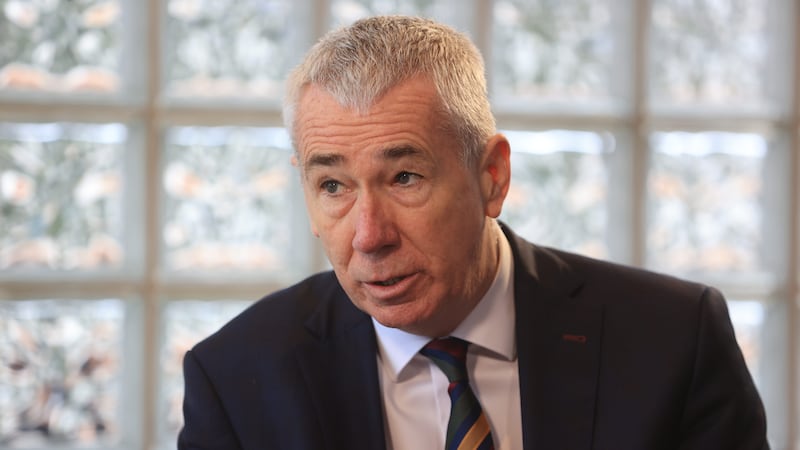In the words of Tony Honoré, equality of opportunity is the essence of social justice in any society. Still, in Northern Ireland, it is a different approach despite the enactment of Racial Equality Strategy 2015–2025, which should have produced a refugee integration strategy that provides a roadmap for the advancement of the many skills and talents that refugees and asylum seekers bring with them when seeking protection in Northern Ireland.
Ethnic Minority Sports Organisation Northern Ireland (EMSONI) recently identified the inability of refugees with leave to remain and work permit to participate in professional sports activities in Northern Ireland, either as a player or coach, because of the requirement of Tier 2 visa.
Requesting Tier 2 visa from refugees has made them unable to explore sport for gainful employment – undermining the development of their sporting talents as many sport clubs look away from the refugee community.
Although many of our refugees are good enough to play or
coach, clubs usually avoid this category of people, because clubs do not want to be fined – due to technicalities over migrant player registration.
This systemic barrier poses as a way of benchmarking refugees as amateur sports persons and overtly contributes to unemployment rate among refugees.
Subjecting refugees to Tier 2 visa route raises a jurisdictional question on the extraterritorial application of the principle of non-refoulement under the 1951 Convention relating to the Status of Refugees and its 1967 Protocol. Non-refoulement significantly constitutes the cornerstone of refugee protection. Article 33(1) of the 1951 Refugee Convention provides that, every refugee and asylum seeker in the UK shall not be expelled or returned in any manner whatsoever to the country where the life or freedom of such refugee had been threatened based on one or more of the grounds set out in the convention. By implication, any refugee that goes ahead obtaining the Tier 2 (Sports person) visa will compromise his or her refugee status and the right of non-refoulement and can be returned to that country where his or her life is at risk.
EMSONI brought this concern to the attention of the Minister for Communities, Deirdre Hargey, underscoring how repugnant this practice is to employment law and immigration rules as it relates to refugee matters.
Subsequently, Home Office was able to reaffirm EMSONI’s position that Tier 2 visa only applies to those without leave or who are wanting to enter the UK as a skilled worker – as against the initial
suggestion from IFA on a Tier 2 visa being a prerequisite to play professionally.
As a result of EMSONI’s campaign, a young refugee boy that was recently denied an opportunity to play because he has no Tier 2 visa – has now been registered and currently playing with his semi-professional football club, but why a Tier 2 visa was a condition in the first place – remains unaddressed.
ADEKANMI ABAYOMI
Adekanmi Abayomi is a Belfast based advocate of social justice and the Executive Chair – Ethnic Minority Sports Organisation Northern Ireland
For some going back to ‘normal’ can be something to fear
Many of us have been waiting over a year for things to go back to ‘normal’. But for many residents and visitors to our city who have invisible conditions like Crohn’s or Colitis, going back to ‘normal’ isn’t something to hope for but something to fear.
For some people, going back to ‘normal’ could mean going back to a world that can make life harder, dealing with people who don’t understand these conditions, in a society not set up to help.
Nobody should have to accept that kind of ‘normal’.
As a councillor in Belfast, one thing I repeatedly hear about is the fundamental importance of more and greater access to toilets, particularly from people with an inflammatory bowel disease. This includes people with invisible disabilities using accessible/disabled toilets without fear of judgment from members of the public or staff.
May 19 was World IBD Day. It was a day to raise awareness of conditions like Crohn’s and Colitis which are the two main forms of IBD.
I was delighted to have helped Crohn’s & Colitis UK– Northern Ireland ensure Belfast City Hall was lit up as a show of support to those residents and visitors to our city.
It was an opportunity for everyone to take action to make the new normal better.
One small but significant thing employers and businesses can do is to install Crohn’s & Colitis UK’s ‘Not every disability is visible’ signage to improve awareness of use of accessible/disabled toilets. A step further is to join their ‘Invisible Disability Employer Scheme’ to improve and promote how to supports employees with IBD conditions – something we’ll be proposing Belfast City Council does.
During lockdown we’ve had a chance to reflect and think about how we could build back better after the pandemic. A better, new normal can only be achieved if it’s inclusive and accessible for everyone.
So, let’s not go back to ‘normal’. Let’s go forward to something better.
Cllr ROSS McMULLAN
Alliance, East Belfast
Human rights crisis must be condemned
The ongoing human rights crisis in Gaza must be condemned by all. When some sort of ceasefire is agreed the people in Gaza will go back to ‘normal’ but unfortunately it is not normal. They are lucky if they receive more than four hours of electricity a day. They are stateless with no rights to a passport and the world sits by and does nothing.
Recently we saw the Abraham accords between four Arab countries and Israel in 2020. This much heralded deal spoke abut bringing peace and yet here we are again. The Minister for Foreign affairs is to be congratulated on the Irish state response calling for what is it. More needs to be done. The Palestinian people deserve better as do the whole of the middle east. The UN must act and act immediately.
PAUL DORAN
Clondalkin, Dublin







